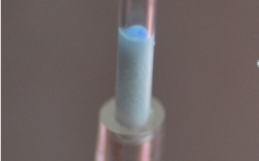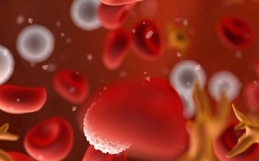Wave 80 Biosciences, Inc. today announced that it has been awarded a USD 7.5 million contract (HHSN272200900029C) by the National Institute of Allergy and Infectious Diseases, part of the National Institutes of Health, Department of Health and Human Services, to developed advanced systems and technologies for use in clinical studies of HIV vaccines.
The contract work is to focus on analyzing virus circulating in the bloodstream and in other reservoirs. Precisely characterizing virus in the blood of participants is essential for differentiating HIV infection from the physiological response to the candidate vaccine.
Methods and tools to be developed under the contract will also support assessments of how well an HIV-infected individual undergoing therapy is suppressing viral replication; for determining whether an infant born to an HIV-infected mother has contracted the disease; and for detecting HIV at the earliest stages of infection.
The contract work builds on Wave 80’s recent advances in Liquid Micropiston technology for overcoming physical effects that limit rates of nucleic acid hybridization. The new NIH contract provides for system optimization and enhancement to analyze HIV virus in the bloodstream and in other reservoirs, including when the amount of virus present is at extremely lowest levels. LMP technology is part of a suite of high-performance assay tools and methods known as the EOSCAPE platform.
“Physicians, patients, and clinical researchers alike have been clamoring for improved capabilities to detect and analyze virus,” said Daniel Laser, Ph.D., Wave 80’s CEO. “We’re excited about the opportunity under this contract to markedly extend the functionality of the EOSCAPE platform to address these needs.”
The amount of the virus in a patient’s bloodstream is known as viral load. Along with CD4+ T cell count, viral load is a key parameter considered by physicians to assess disease progression and to evaluate how well the patient is responding to therapy with antiretroviral drugs. Measuring the presence of the virus itself also tells doctors different kinds of information than can be learned from traditional HIV diagnostics, which indicate whether the patient has produced antibodies to the virus.
While infants born to HIV-infected mothers can contract the disease in utero or during passage through the birth canal, the vast majority escape infection. Yet, whether infected or not, most of these children will carry antibodies to HIV from their mother until they are well over a year old—meaning that they will test positive on a serology-based tests widely used to diagnose HIV in adults.
As a result, the best way to avoid administering antiretroviral drugs to infants who don’t need them is to carefully test for virus during the first months of life. “Early infant diagnosis, or EID, is widely considered to be one of the most pressing issues in HIV patient care,” said Dr. Sharon Safrin, Wave 80’s Clinical Affairs Specialist. “The EO-NAT HIV’s unique capabilities for EID promise to dramatically improve outcomes for newborns.”
HIV vaccines undergo exhaustive clinical trials with huge numbers of volunteers—some sixteen thousand men and women participated in the combination Alvac-Aidsvax trial completed last month. Trial participants who develop immunity to the disease are likely to produce the very same antibodies as HIV-infected individuals, necessitating the use of NATs to definitively differentiate true infection from this vaccine-induced seroconversion.
The EO-NAT HIV uses next-generation molecular signal amplification technology to achieve accurate results even with samples which have not been maintained in pristine condition. Recent studies demonstrating the effectiveness of concerted antiretroviral therapies during pregnancy at preventing mother-to-child transmission have taken place in remote regions of Africa and east and southeast Asia. The Alvac-Aidsvax trial took place in coastal Thailand.
The duration of the new NIH contract is five years. Wave 80 has previously received funding for molecular diagnostics research and development under the Small Business Innovative Research program from both NIH and the U.S. Department of Defense.
Along with Wave 80, project participants include a team led by Professor Catherine Klapperich at Boston University College of Engineering and Siemens Healthcare Diagnostics.



